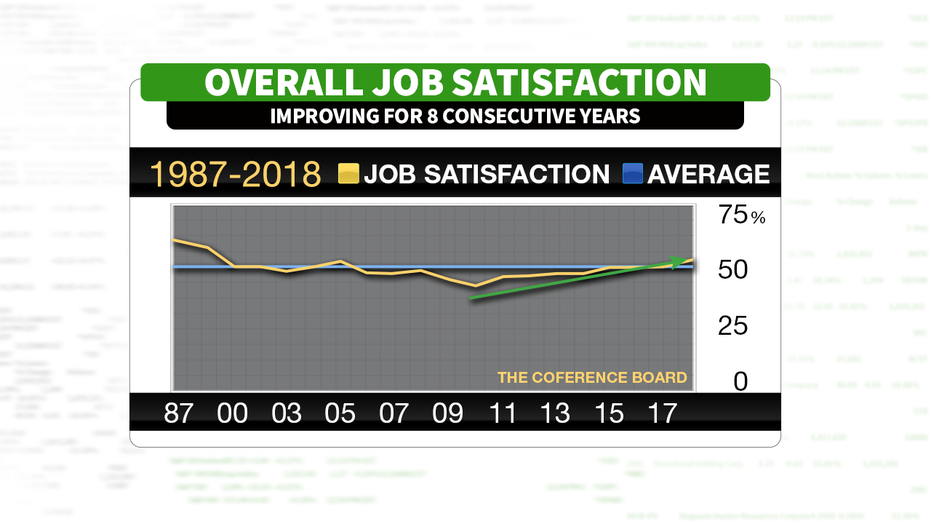More than half of Americans are satisfied with their jobs - here's why
U.S. workers are more satisfied with their jobs than they have been in two decades, according to a new report from the non-profit research group, The Conference Board.
The researchers surveyed about 2,000 workers nationwide.
More than half, or 54 percent, said they are happy with their work. That’s a 3 percent bump since last year, and the second-biggest increase in the survey's 32-year history.
The survey ranked 23 components influencing satisfaction, and among those, job security saw the biggest improvement: It increased 5 percent from 2018. Wage satisfaction saw the next biggest increase, rising nearly 10 percent among those under the age of 35.

That was followed by workers’ commute, interaction with coworkers, interest in their jobs, and satisfaction with their work environment supervisor, all of which the respondents said they were pleased with. The survey points to an improved labor market as the main reason for boosting satisfaction, which “has risen in each of the past eight years.”
Not all aspects of work are were great, though. Respondents gave poor marks to their current job's potential for future growth. As well, more than 60% are unhappy with their job's recognition practices, performance review process and communication channels.
The lowest satisfaction ratings are with workers' economic aspects. Specifically, people are least happy with their company’s bonus plan. That’s followed by their job’s promotion policy; performance review process; educational and job training programs; recognition and acknowledgement; and communication channels.
The researchers also gauged which aspects are the strongest drivers of overall satisfaction. Potential for future growth ranked highest, then communication channels; recognition and acknowledgment; interest in work; and the performance review process.
Perhaps surprisingly, wages ranked only 10th out of 23 drivers of satisfaction.
Men and women view their jobs a bit differently, per the research. While the top three overall drivers of satisfaction were the same, men valued wages, promotion policies and bonus plans more than women. And women valued their coworkers, their job’s communication channels and work-life balance more than men.
While the overall consensus is good, Robin Erickson, PhD, one of the report’s authors and a principal researcher at The Conference Board, sees room for improvement: “Our research reveals that workers place the biggest premium on a job's potential for future growth, but at the moment 60 percent of U.S. workers feel dissatisfied with this component,” she noted in the research. “To help change course – and ultimately, retain their employees so they gain an edge in this tight labor market – organizations should make a greater commitment to total talent mobility, a holistic approach to both internal and global mobility.”




















